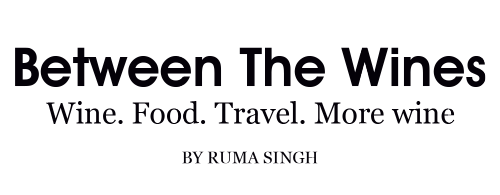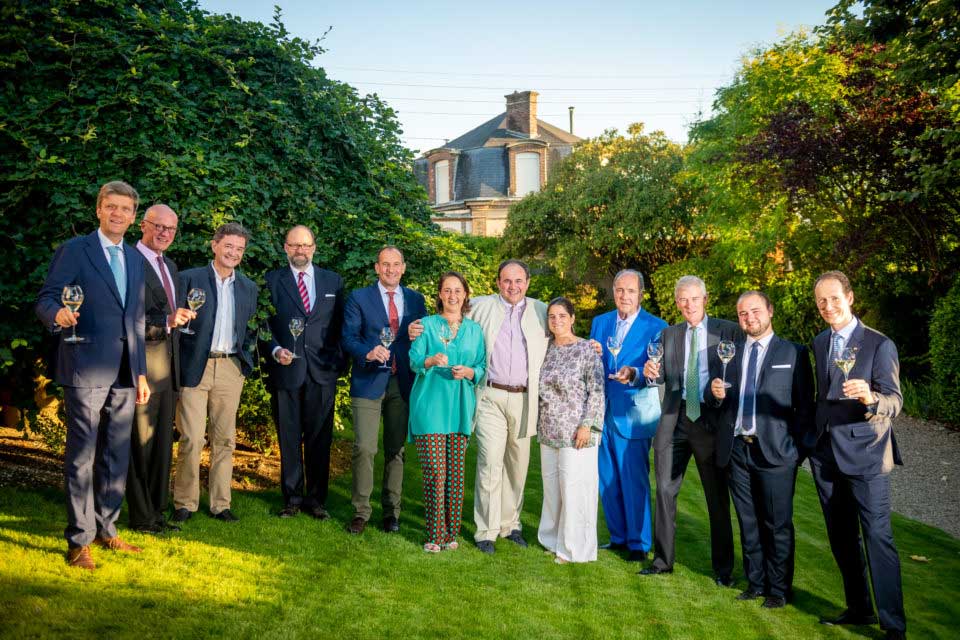Covid-19: ‘We can’t abandon our vines and our wines’
Primum Familiae Vini, or PFV as it is known is the international high-powered international association of 12 leading wine families of the world. The families, as members, have been at the forefront of the world wine industry for decades, sometimes centuries.
As the Covid-19 virus brings the world to a grinding halt, the wine industry all over the world has also been severely affected, along with many other businesses.
In this series of articles, members of PFV, whose motto is ‘Family is Sustainability’ and believe in supporting one another, address the issue of this lethal pandemic facing them, reflect as well as look ahead to the future, uncertain as it is today.
The articles will be posted in two parts as members of the PFV discuss, advise and recall devastatingly troubling times in their past, from which they have survived and emerged stronger.
What has been your reaction to the pandemic which has affected all, including the wine industries around the world? Do you recall facing any similar challenge earlier in your life? Could you tell us about crises from the past that former generations of your family had to face?
Albeira Antinori, Marchesi Antinori, Tuscany, Italy
At first, being Italian and being the first European country to face the epidemic, we were worried but had not really understood the size and importance of what was happening. At this moment we are into the second week of our ‘lockdown’ and about three weeks into the time since all businesses, especially restaurants and tourism, have slowed down and now totally stopped. The only activities that are still on are the ones in the vineyards and shipping. We cannot do much more for the moment; this is for the health of our workers and for our own. We hope that the measures our government has put in place will slow down and eventually terminate the pandemic.
Our generation has never seen anything as rapid and threatening as this. Nor my father’s generation, as he was born in 1938, though he experienced the challenges of rebuilding the economy. My grandfather saw and lived through two World Wars, so he would have had some very good advice… For sure, ‘resilience’ would be a good word we should mention.
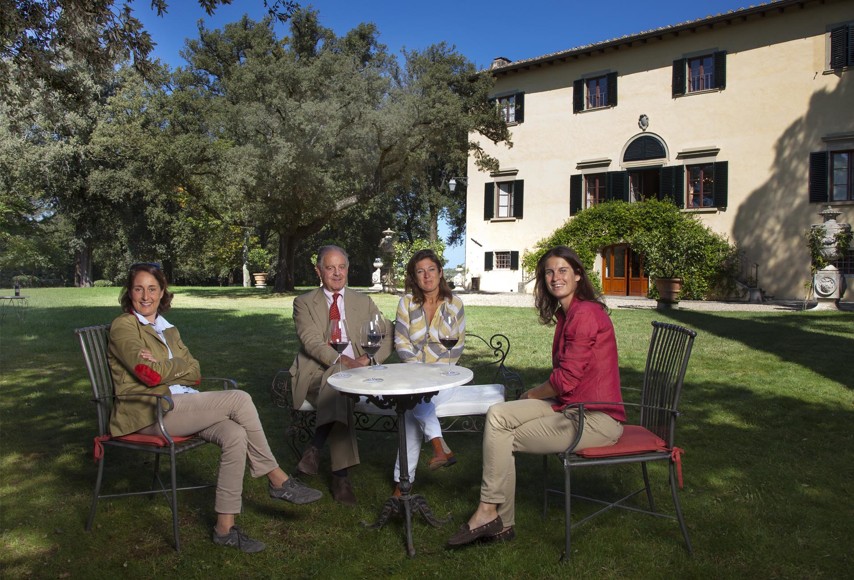
Albeira Antinori (left) with her father, Piero and her sisters, Allegra and Alessia.
Main image of PFV: Michael Boudot
As our family has a long history in Florence, we can recall one very strong epidemic, the Black Plague of 1348, which came after the bankruptcy of the major Florentine banking families (Peruzzi and Bardi) in 1343 as the English King Edward III did not honour his debt to them. Florence’s population was reduced to 60% by 1350. After this terrible period, although there was strong political unrest for many decades, the base for a cultural movement, the Humanism movement (inspired by Petrarca, known in English as Petrarch) was put in place. And after that, the Renaissance began in 1400.
Our family was ‘forced’ to abandon its trading activities of silk, wool, and banking due to the Black Plague and bankruptcy, and concentrated all its energy in managing the country estates they had around Florence. In 1385 Giovanni di Piero Antinori inscribed himself in the Vintners’ Guild and made wine and vineyard growing our only activity.
So, there is a good example of positivity after terrible times.
Paul Symington, Symington Family Estates, Portugal
Our number one priority is the health and well-being of our staff. So our first reaction has been to care for them. Then we have been adapting to the fast-changing situation of many restaurants and hotels closing and people being obliged to stay at home. But we are continuing to work in our vineyards and in our cellars. We cannot abandon our vines and our wines.I have never faced such a crisis, but my parents and grandparents certainly did with the Great Depression, the First World War and the Second World War. So in a way, we are being measured up against how they performed and we are determined to do as well as they did.
Robert Drouhin , Maison Joseph Drouhin, Bourgogne, France
My son Frédéric passed me on your interesting question: How did our family businesses react to the crisis they went through over generations?
Two wars -1914 and 1939 and our own personal experience at Joseph Drouhin: in 1973 our winery was destroyed by fire including some 200,000 bottles. And in 1993, an internal financial crisis.
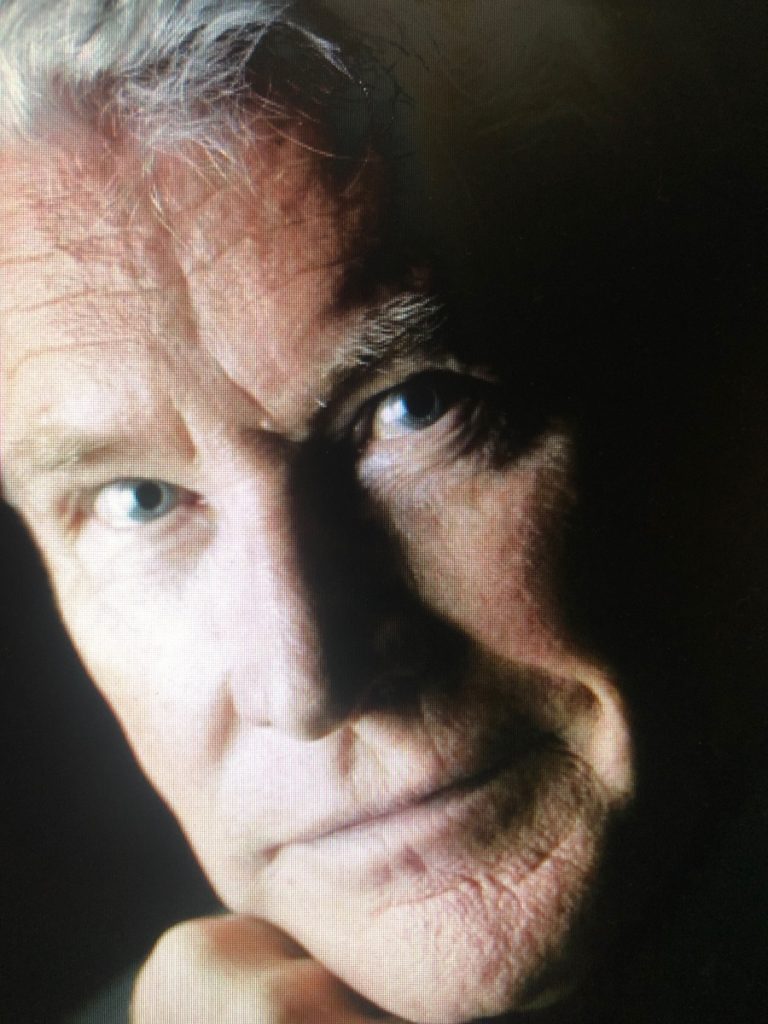
‘We came out stronger, better organised…’
Robert Drouhin
Maison Joseph Drouhin
We came out stronger, better organised, the common lessons of these crises are now cited as examples to our children. During those troubled time we saw:
- The cohesion of the family
- The physical and moral help from the women
- Faithfulness of customers
- The local support from our colleagues
- The importance of moral values
All reflected the reputation, the respect that everyone had for our family and its moral integrity.
Coronavirus is dramatic from a human point of view but for a company, it is a temporary problem we have to solve thanks to strict planning, the contribution of our employees and their confidence in the company.
All our PFV friends have wonderful assets, large estates, worldwide distribution, long-term vision as shareholders who share the same values. For sure, some wine merchants or distributors will disappear who have been only motivated by short-term profit and unreasonable confidence in the glorious economic growth of the world.
Miguel Torres Jr, Familia Torres, Spain
This is a very complex and exceptional situation for everyone and the consequences of Covid-19 are having an enormous impact on every aspect of life. First and foremost, on the health of ten thousands of people around the world, which is putting the health services in all countries to the test. It is also having an enormous economic impact on many companies and sectors. In Spain, we have been living under a national lock-down for more than a week now and of course, everyone has been adapting as much as we can: at Torres, the majority of our team now work from home and those team members working in viticulture and the production departments follow very strict security and protection measures to minimize the risk of infection and to ensure the continuity of our winery.
It is an exceptional situation and I thank our whole team for their professionalism and sense of responsibility. Unfortunately, we had to stop all our wine tourism activities and had to close-down our visitor centre and restaurants temporarily. Of course, we have also postponed our 150th Anniversary event until next year. The developments around Covid-19 are moving very fast and we cannot yet know what impact this will have on our activity, but it will be significant. We are facing a global crisis and it is inevitable that in most markets wine sales will decrease. In any case, we must maintain optimism, as this situation is beyond anything my generation has experienced, but it won’t last indefinitely. China is already recovering from the onslaught of the virus and we all will overcome it sooner or later.
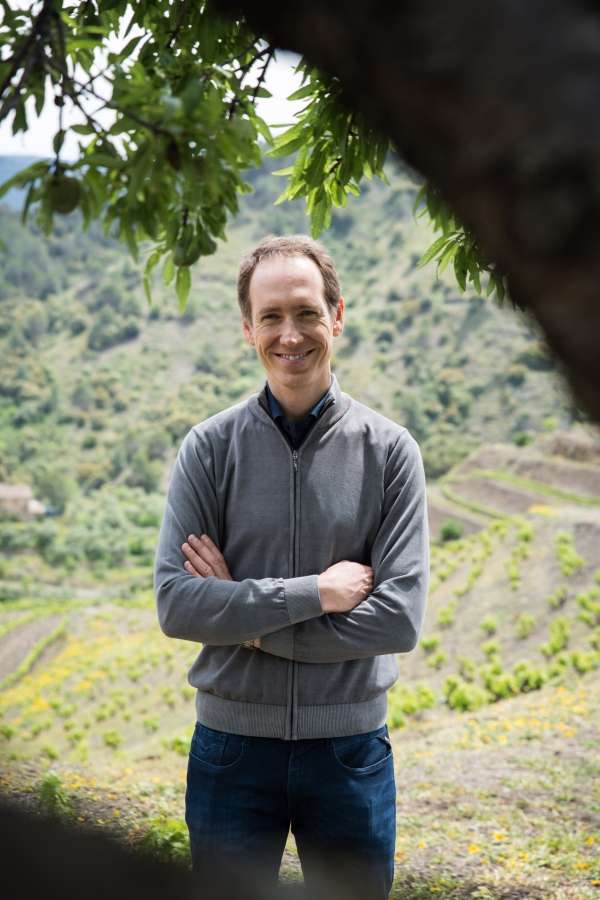
‘We must maintain optimism, as this situation is beyond anything my generation has experienced’
Miguel Torres Jr
Familia Torres
Nicolò Incisa della Rocchetta, Tenuta San Guido, Tuscany, Italy
We could say that we have been lucky in the past century. A crisis like this one we are experiencing in these days has never really occurred in Bolgheri. Life seems to be easier in the countryside even during difficult periods such as wars or pandemics. This area somehow is, and always was, quite protected. Our family estate has managed to survive during World War II when agricultural activities have continued as usual even during those hard times. In fact, it is precisely around those years that my father Mario Incisa had started with his experiments around Cabernet Sauvignon in the Bolgheri area. This can be seen as a positive and encouraging example of how passion and perseverance, even during tough times, can eventually turn out into something extraordinary. Like the genesis of our wine Sassicaia and the subsequent developments of our family estate, Tenuta San Guido.
In Part II of this article, the PFV members discuss how they feel the world has changed after Covid-19, and how it affects their philosophy for the future.
